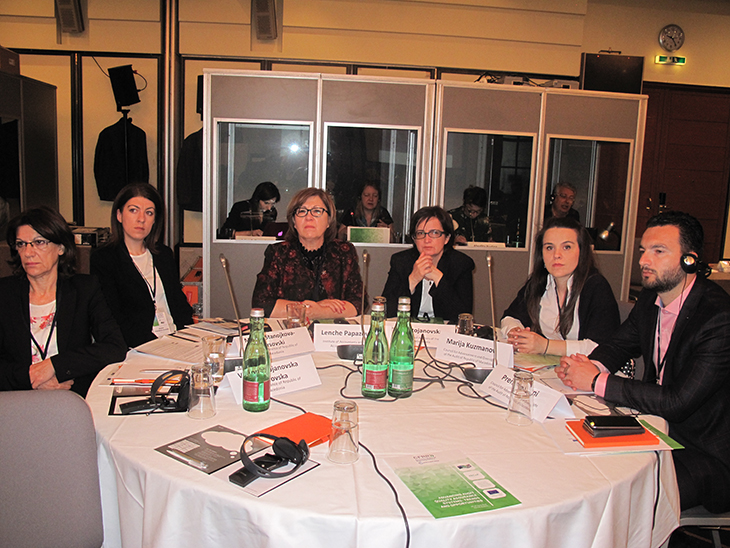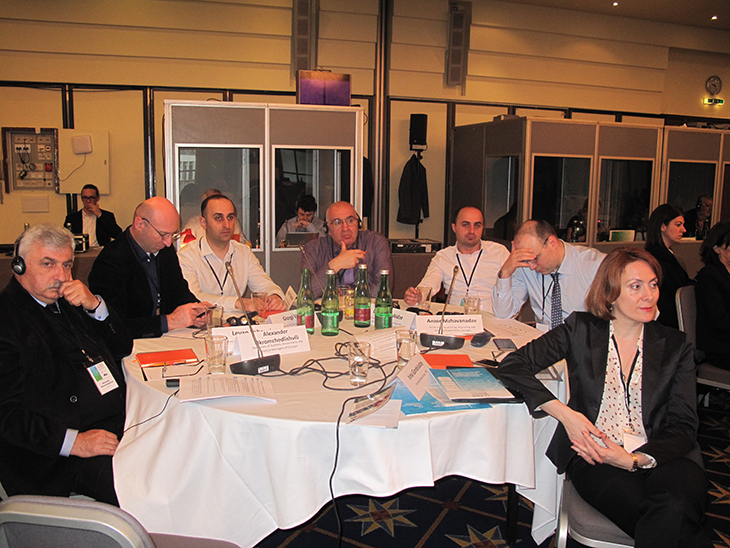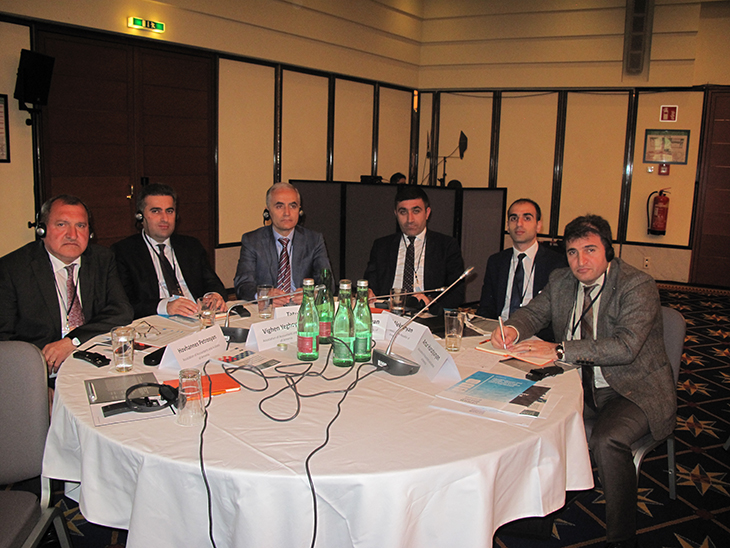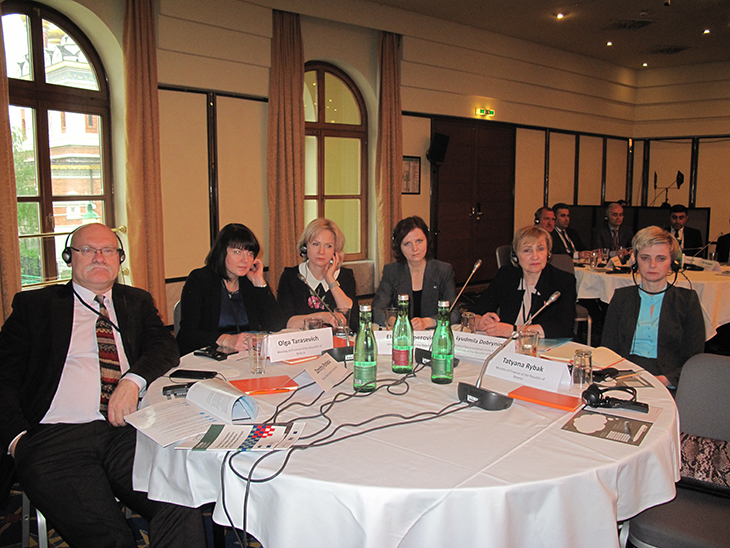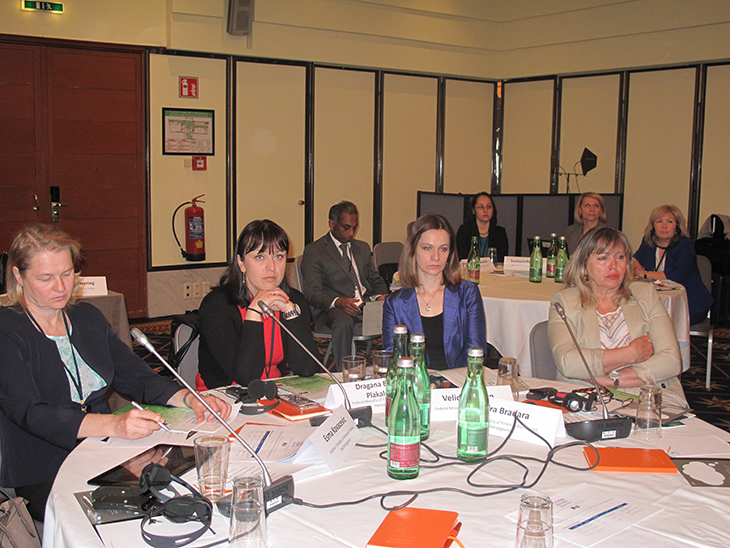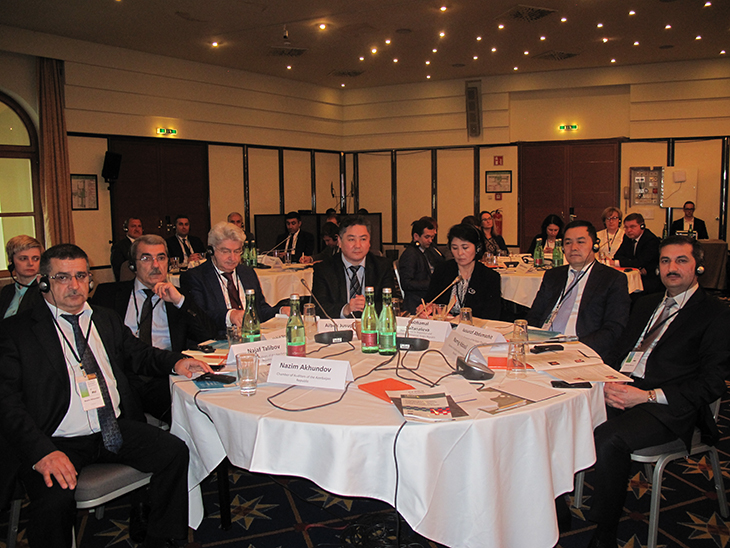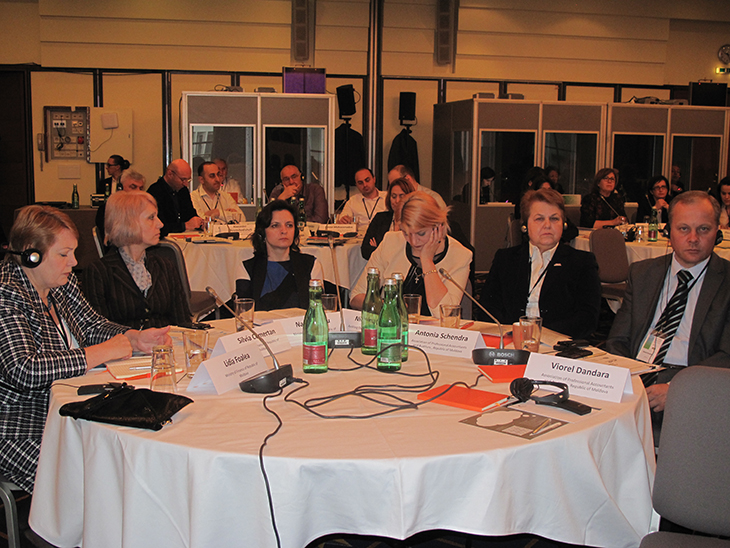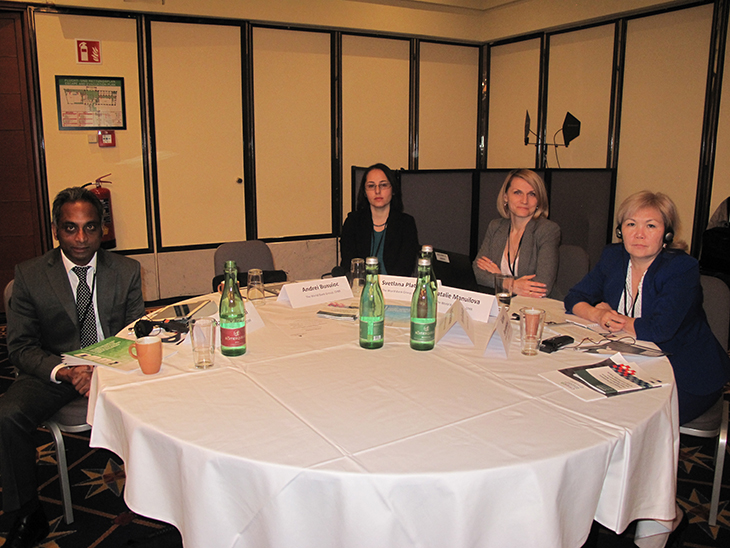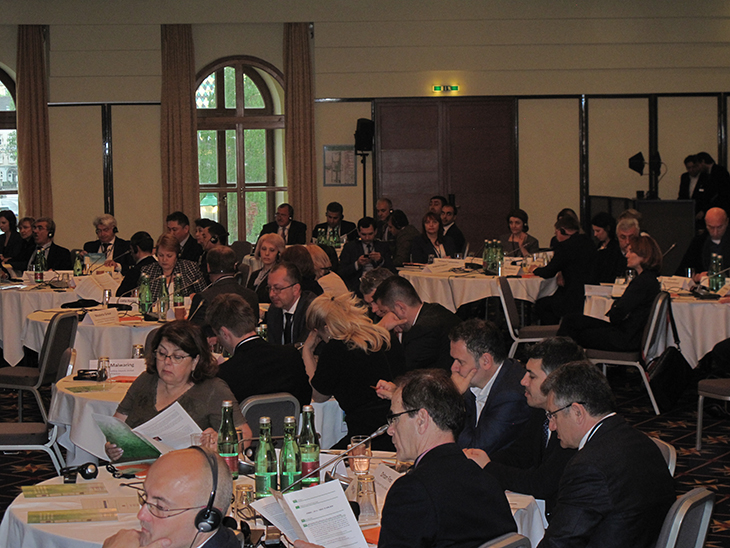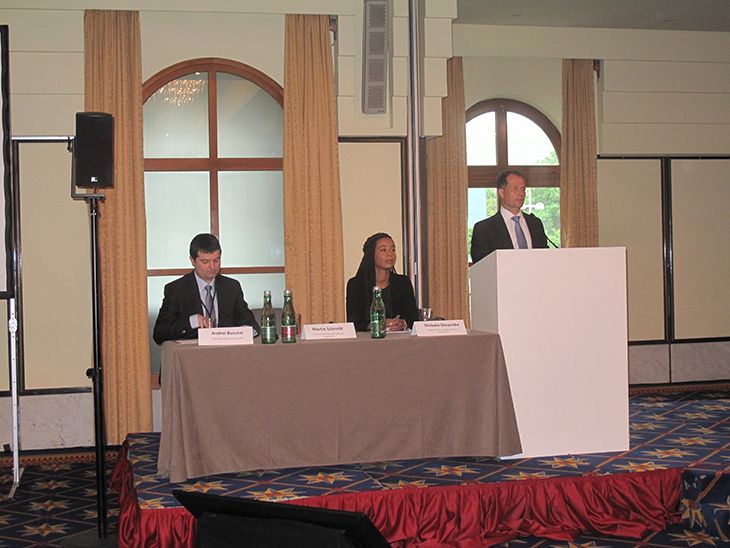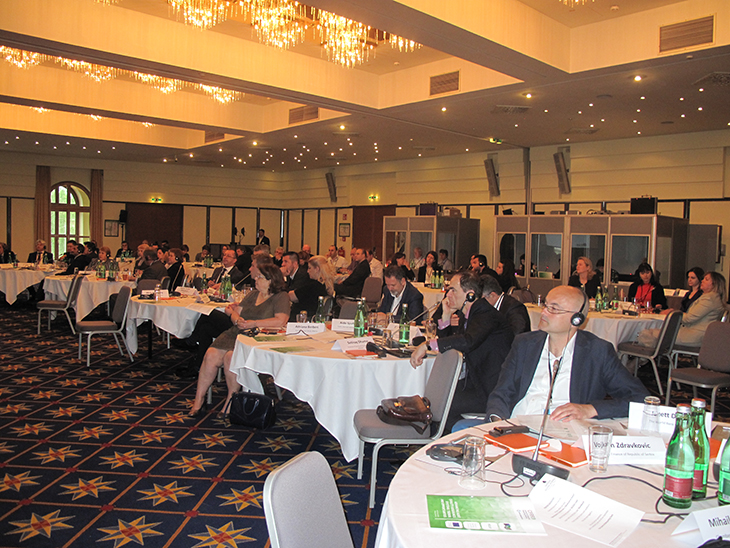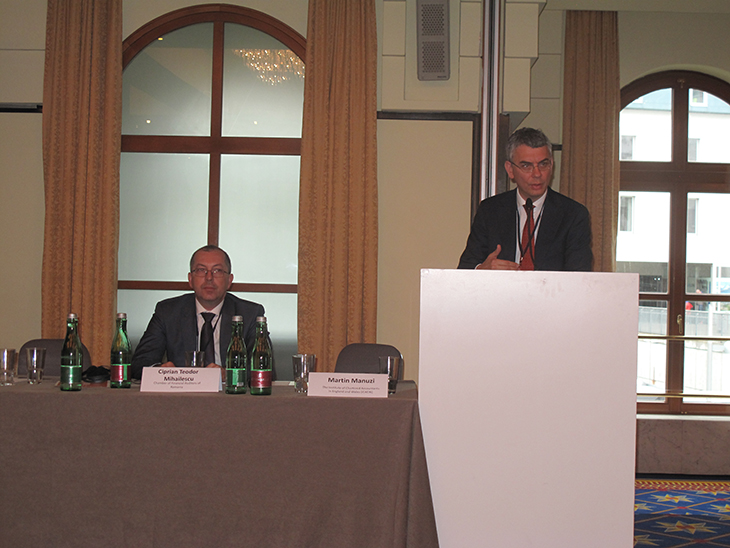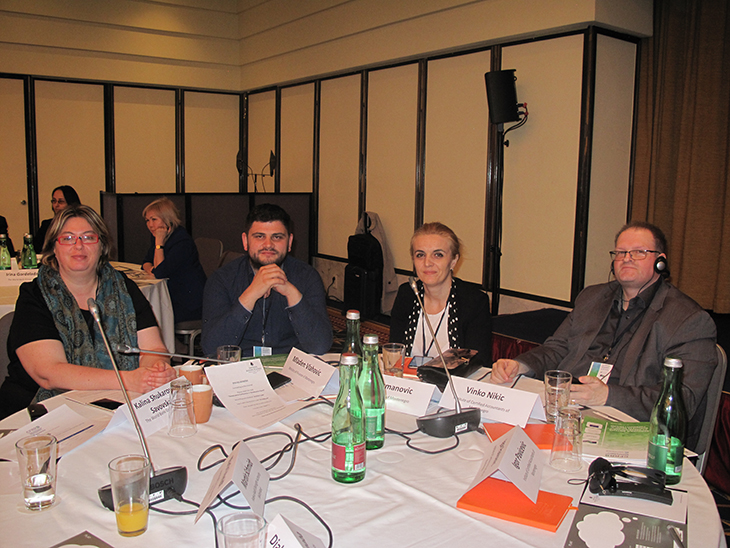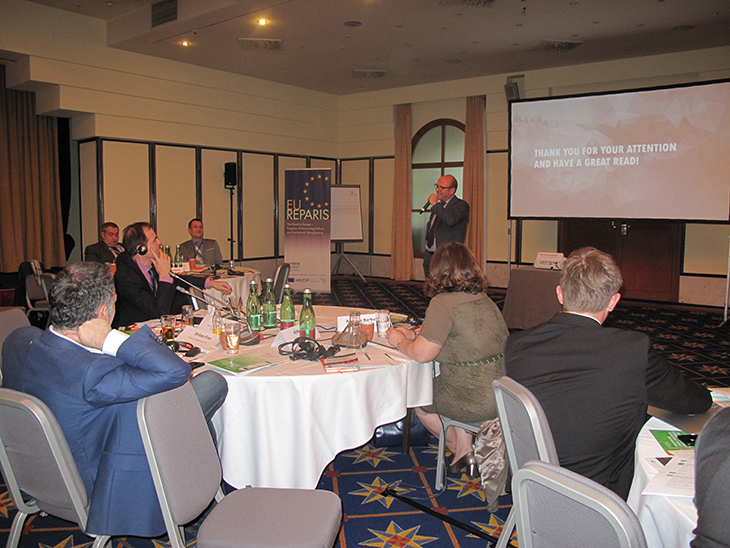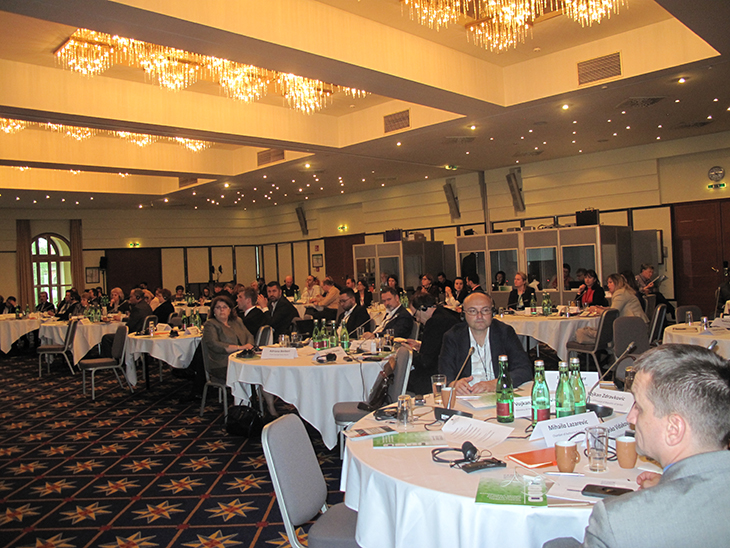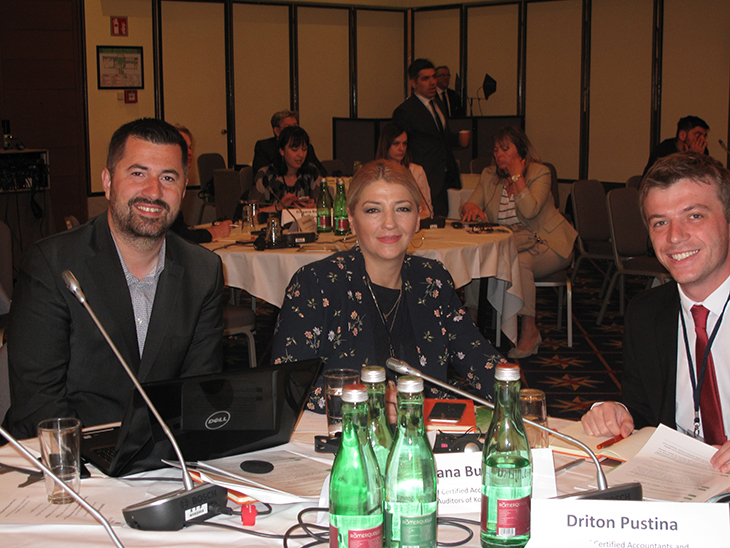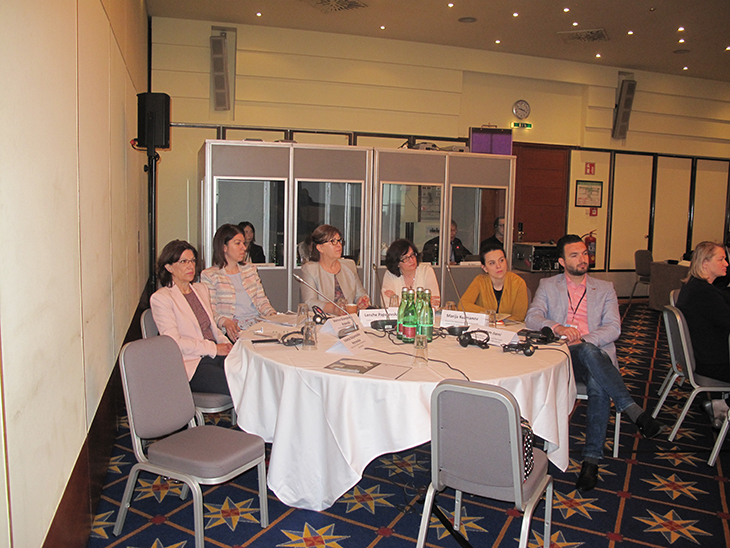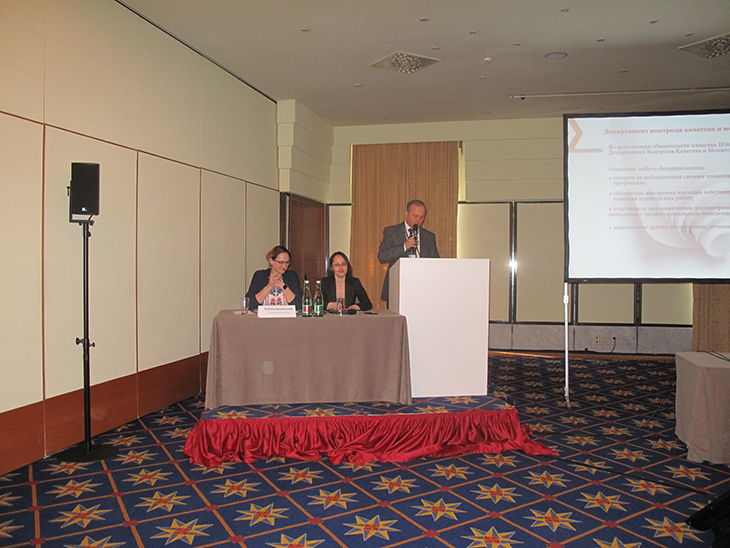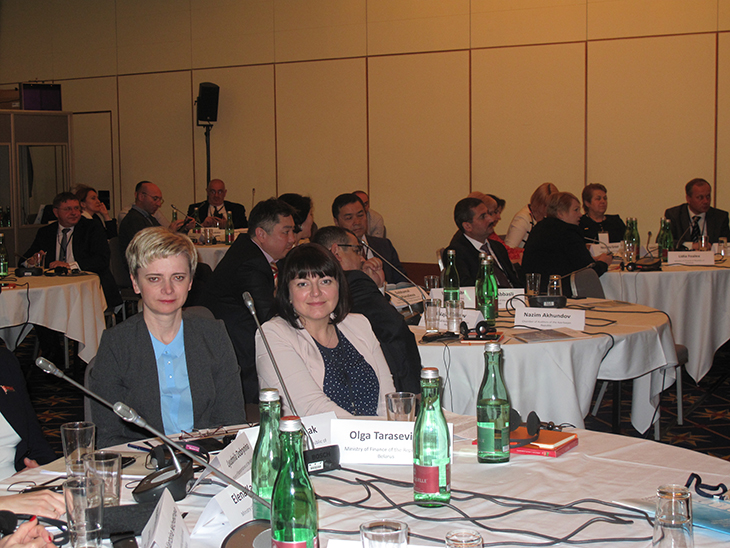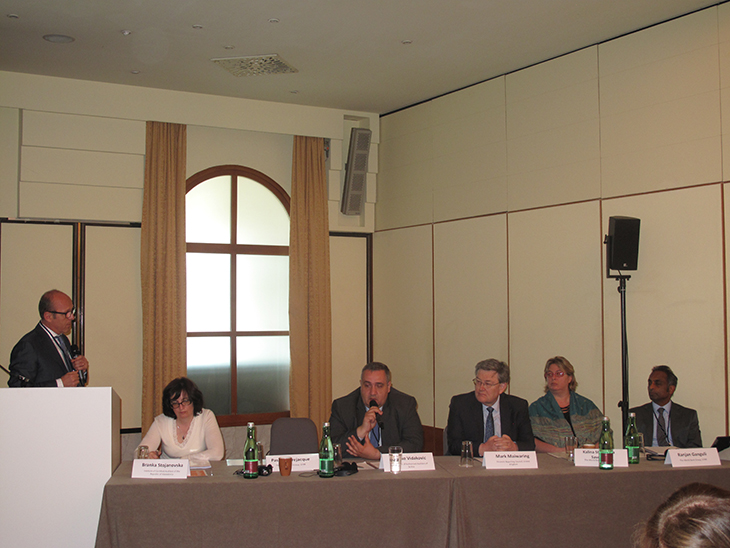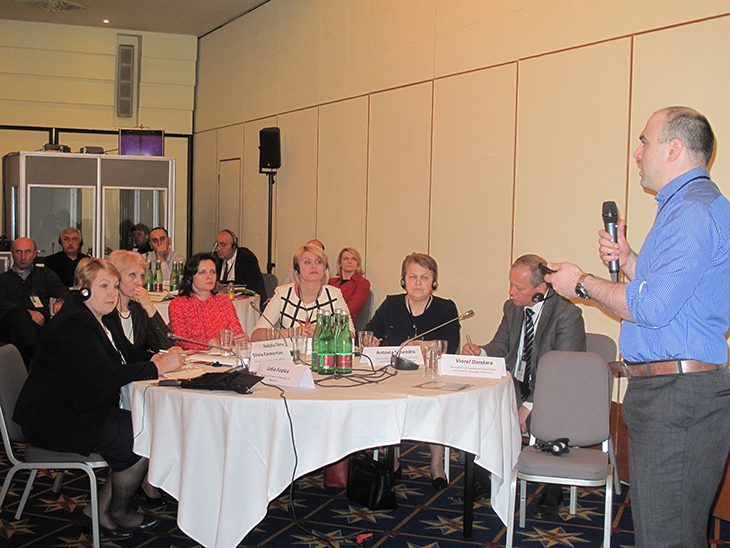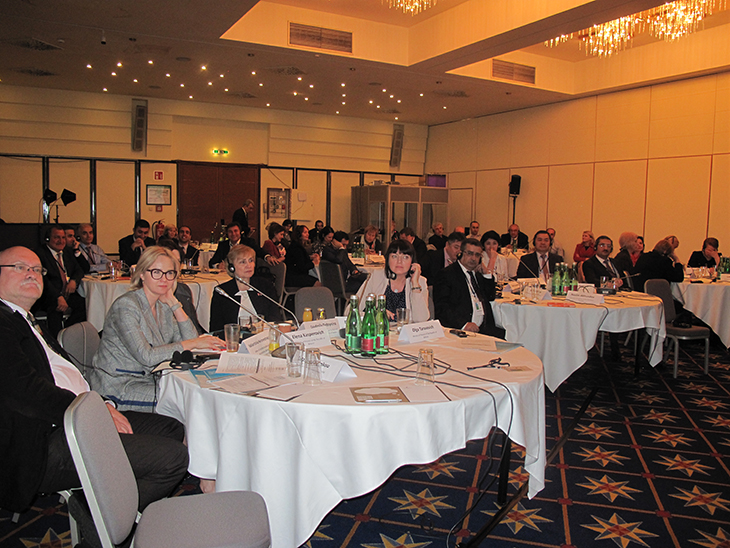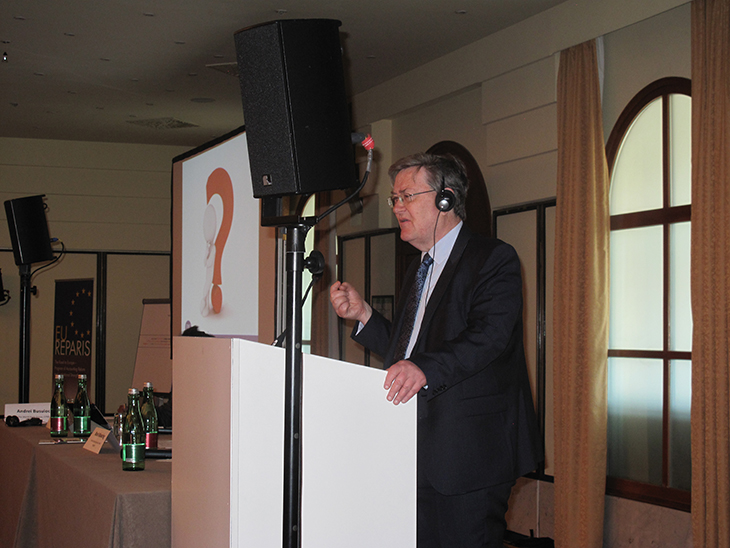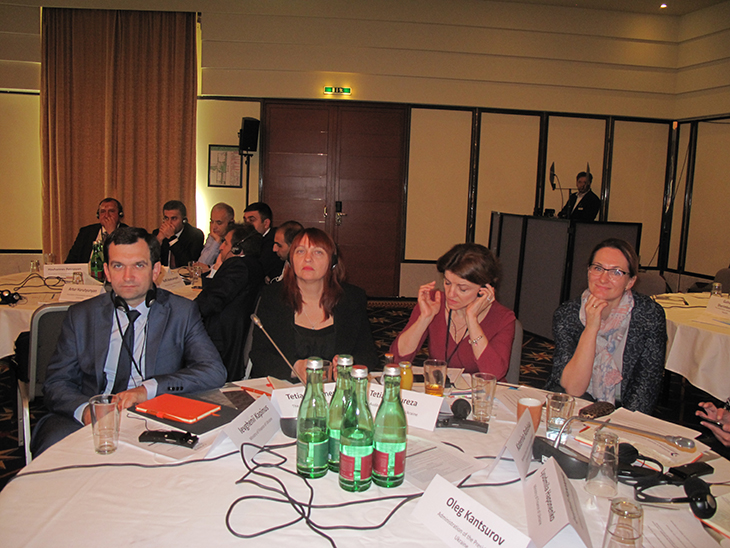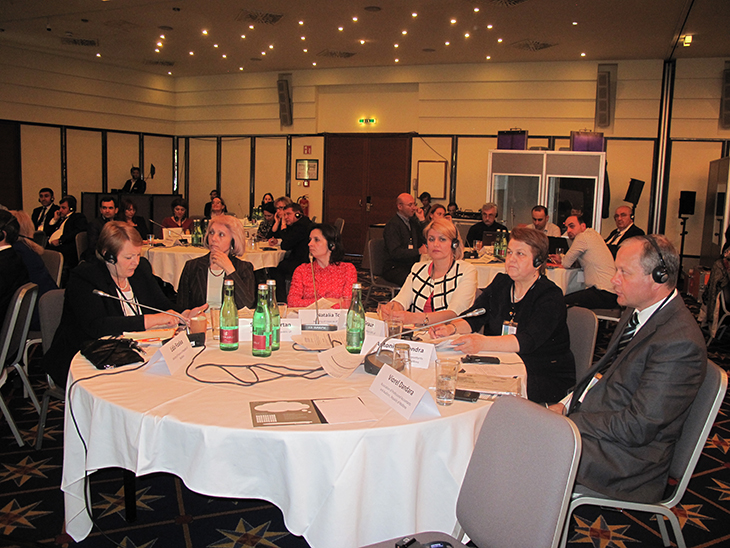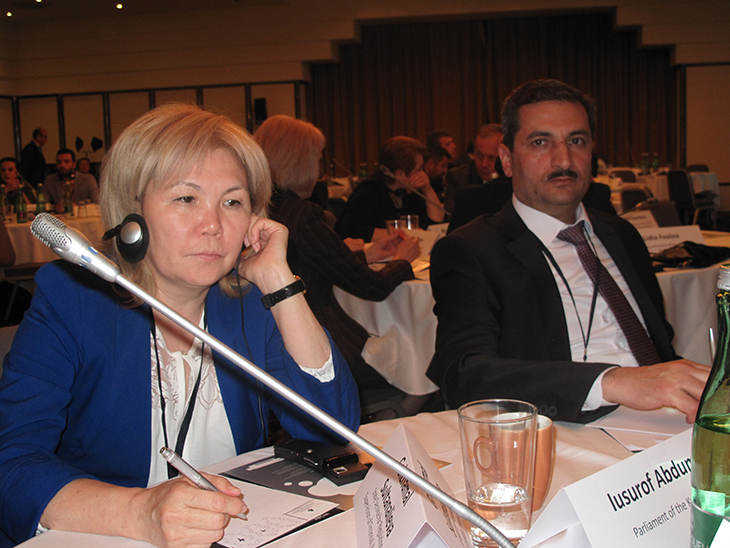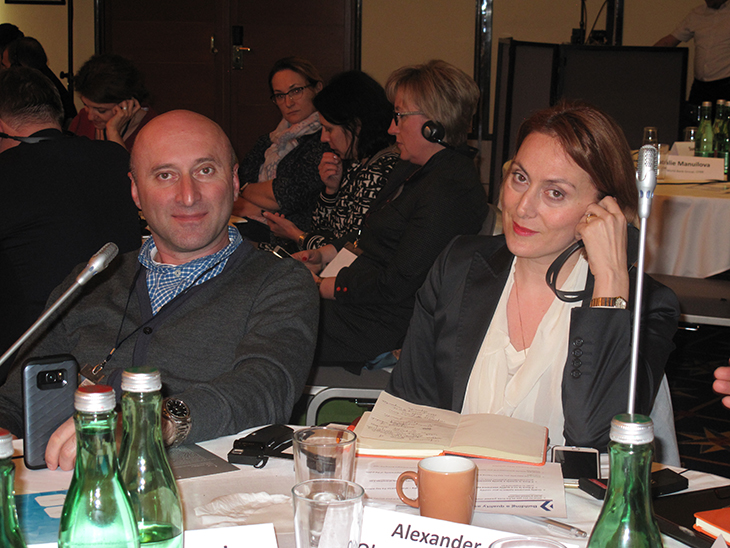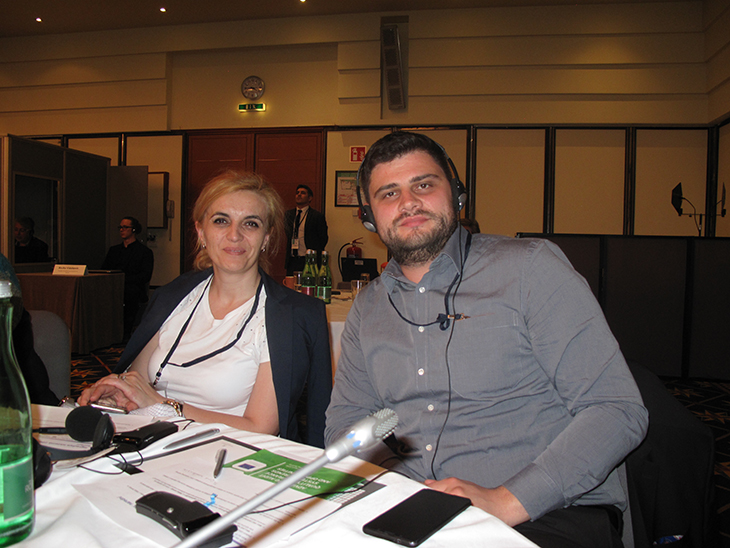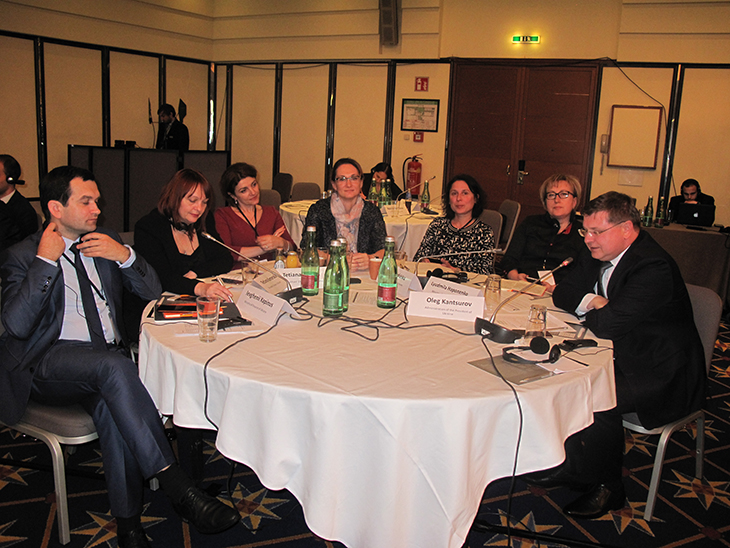A two-day workshop in Vienna on 26 and 27 April, 2018 convened together participants from each of the countries of two regional CFRR projects: Armenia, Azerbaijan, Belarus, Georgia, Moldova, and Ukraine as part of the Strengthening Auditing and Reporting in the Countries of the Eastern Partnership (STAREP) and Albania, Bosnia & Herzegovina, Kosovo, Macedonia, Montenegro, and Serbia as part of the Road to Europe: Program of Accounting Reform and Institutional Strengthening (EU-REPARIS). Representatives of the Kyrgyz Republic attended as guests as part of the Kyrgyz Audit and Reporting Enhancement Project (KAREP).
The main objective of the workshop was to enhance participants’ knowledge about audit quality assurance systems, through presentations and discussions about key principles of audit oversight and processes of quality assurance systems.
The issue of audit quality remains vital to public confidence in audit. While the implementation of audit quality are at various stages in the countries participating in both programs, concerns remain, both about those audits that fall below satisfactory standards and about the pace of improvement. As a result, there is a keen interest in initiatives to drive better audit quality.
On Day 1, key areas which were addressed included:
- An overview of the International Forum of Independent Audit Regulators (IFIAR) and the value of membership for audit oversight institutions was presented, including details on participating in inspection peer learning activities that are delivered under the auspices of IFIAR working groups, i.e. inspection workshops, survey of inspection findings and developing common positions on new standards.
- The Institute of Chartered Accountants in England and Wales (ICAEW) outlined their recent initiative on quality assurance networks (QAN). Participants learned about QAN, its activities and outcomes from the perspective of one participating professional accounting organization, i.e. the Chamber of Financial Auditors of Romania (CAFR).
- Croatia’s successful reforms towards EU accession in June 2013 and a review of the key elements underpinning the country’s success were presented to the participants. The audience was briefed with nine valuable practical insights for successful reforms, which can also be consulted in an available publication, Croatia’s EU Accession: Case Studies on Reform and the Transposition of the Community Acquis, targeted at EU candidate countries specifically, and in general at others seeking to adopt or modify their financial reporting framework and build administrative and institutional capacity to implement these reforms.
- The Institute of Certified Auditors of the Republic of Macedonia (ICARM) outlined operational results in audit quality assurance as well as successes and challenges from nine years of experience. Various stages of implementation (i.e. cooperation, launching the quality assurance inspections) were discussed using illustrative examples from their inspection programs, highlighting typical findings, and indicating the main challenges and results achieved.
On Day 2, several interactive sessions on key topics outlined below took place.
Legal framework and its implementation in STAREP countries: recent updates since last workshop
Each STAREP country updated the audience on the progress made since the last workshop related to the legal frameworks and/or adoption of the new legislation in the field of auditing, public oversight and accounting. Georgia, Moldova and Ukraine have adopted new improved legislation, a concept for accounting and audit reform was approved by the Government of Armenia. Other countries are on the road to developing new improved legislation and/or amending the existing legal framework which will enable establishment of proper quality assurance systems.
Georgia also offered a perspective on their experience, progress and future plans related to the development of quality assurance methodology and performing inspections by recently established (September 2016) Service for accounting, reporting and auditing supervision.
Legal framework and its implementation in EU-REPARIS countries: recent updates since last workshop
Each EU-REPARIS country delegation updated the audience on the developments in their country since the last workshop relating to aligning their legal framework with the EU acquis for matters of financial reporting, auditing and public oversight as well as efforts undertaken to implement that framework. All country delegations reported that they are at various stages of establishing and operationalizing their public oversight bodies by revising legislation, securing financing, hiring inspectors and developing procedures and manuals, particularly those relating to quality assurance inspections. Albania is perhaps further ahead of the other countries in terms of establishing its public oversight body, having already amended its legal framework and working intensively on developing manuals and hiring quality assurance inspectors. The Bosnian and Macedonian delegations reported that sadly they still had not managed to revise their legal frameworks to reflect EU requirements for public oversight regarding audits of public interest entities.
Developing an effective quality assurance function
The CFRR team currently working with the Kosovo public oversight body shared the approach being taken to strengthen the capacity of that body through a FIRST-financed project. Of particular interest to participants were the approaches taken with regards to delegation of responsibilities from the public oversight body to the professional bodies, developing the public oversight body’s budget and securing its funding.
A representative from the quality assurance inspection unit of the United Kingdom’s public oversight body, the UK Financial Reporting Council, discussed the foundations of a good quality assurance system, stressing the importance of prioritizing in terms of developing that system as well as getting the right staff and inspectors. He also presented participants with information about the Common Audit Inspection Methodology (CAIM) developed by a working group of the Committee of European Auditing Oversight Bodies (CEAOB), including how all participants may freely get access to the public version of that quality assurance methodology and how IFIAR members may get full access of all of it.
The key takeaways, current challenges and next steps
The workshop concluded with a discussion on the challenges and benefits of implementing an effective quality assurance system and what would be the next steps.
Some of the key challenges mentioned were:
- There is never a final or best solution for a country in respect of the quality assurance system; the system itself should be continuously developed, maintained and improved based on international practices;
- The EU acquis requirements are the same even for small professions, thus, a country should identify the proper solution to maintaining the quality of audits and avoid losing the confidence of the public in the information provided by audited financial statements;
- Each country could likely have different solutions to EU acquis implementation;
- The issues related to the transfer of the existing quality assurance system within professional accounting organizations to an independent public oversight body in order to comply with the EU acquis requirements. The ability to not destroy what is already functional, but rather improve the actual systems, was mentioned as being crucial;
- A lack of methodology for quality assurance inspections adapted to the general legal framework of the respective country;
- There is an imperative need to increase the capacity of the inspectors doing quality review in the countries with newly-established public oversight bodies.
Participants were grateful for the opportunity to interact with international experts, and to share experiences and learn from each other. There was considerable interest in greater cooperation among countries participating in regional projects, as learning from each other helps to identify proper solutions and new ideas at the country level. Cooperation was seen as the best way to share resources, which are always limited, at both regional level among countries and at country level among the profession and regulators. The possibility to join IFIAR in the near future as full member or as an associate member and to take advantages provided by the forum will be considered by many attendees of participating countries.
Topics of interest for future CFRR events included detailed methodology for quality assurance inspections based on real-life examples, good practices in respect of selection criteria, and qualification requirements for quality assurance inspectors.
Disclaimer: This webpage was created and maintained with the financial support of the European Union. Its contents are the sole responsibility of CFRR and do not necessarily reflect the views of the European Union.
The genesis for this publication was conceived within the context of the EU Road to Europe – Program of Accounting Reform and Institutional Strengthening (EU-REPARIS) regional program, which aims to provide assistance to the countries of Central and South East Europe on corporate financial reporting reform, particularly candidate countries to European Union (EU) accession. It is a product of close collaboration between the EU’s most recent Member State, Croatia, and the Centre for Financial Reporting Reform (CFRR), which has extensive knowledge and experience working with countries in Europe and Central Asia to implement high-quality financial standards.
Prior to attaining membership in the EU, candidate countries are required to agree to the acquis communautaire, the entire body of European law. During the 2004 and 2007 EU enlargement rounds, a total of 12 countries gained EU membership and their experiences provided a plethora of information on the scope of the reforms that typically characterizes adoption and implementation of the acquis communautaire. However, available literature tends to focus on the gaps that countries have to address but offer limited experiential documentation of how countries scale the monumental undertaking of alignment with the acquis communautaire.
This collection of case studies is an attempt to share the how of one country’s odyssey. Through Croatia’s decade long journey from application in 2003 to EU membership in 2013, it offers a glimpse into how countries go about large-scale reform using the corporate financial reporting reform process as the lens through which the story is told. In so doing, the main objective is to offer practical insights to other EU candidate countries specifically, and in general to others seeking to adopt or modify their financial reporting framework and build administrative and institutional capacity to implement.
